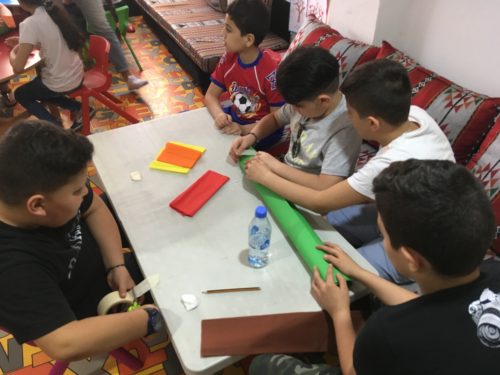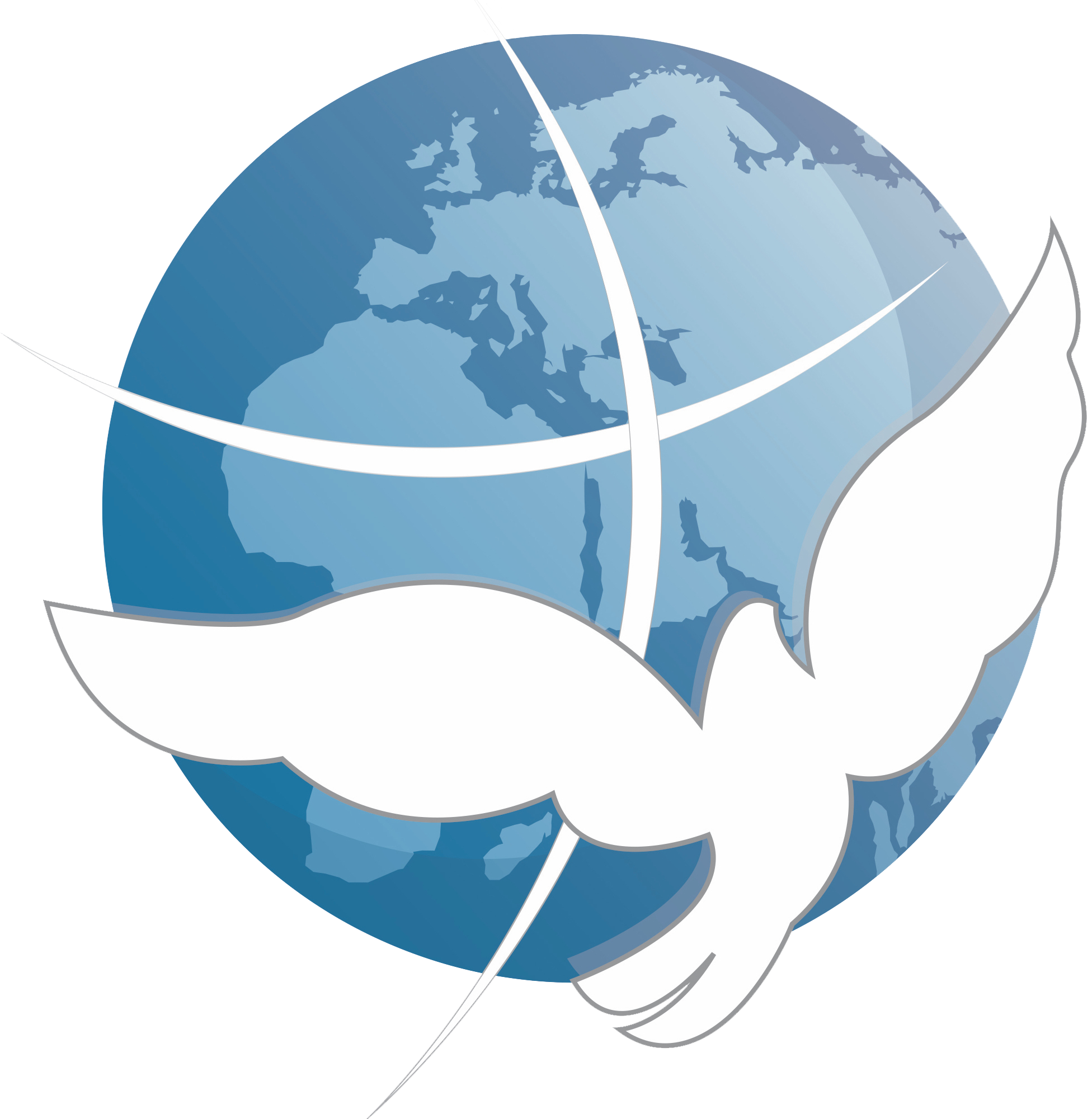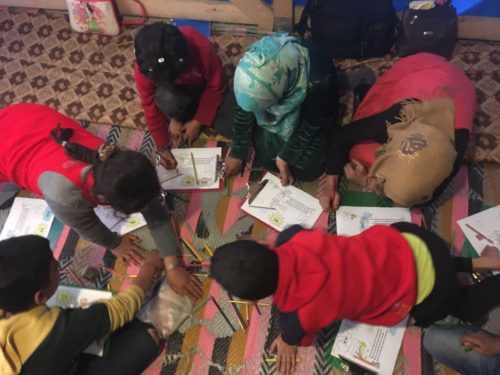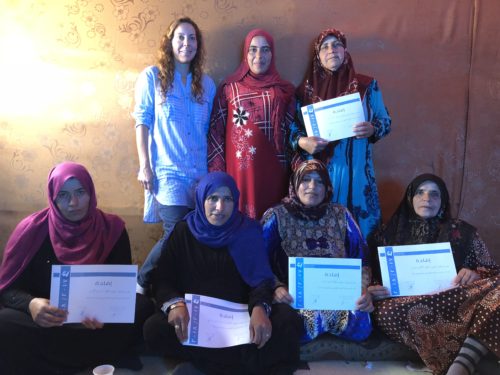This article was originally published on the Children on the Edge website from information given by Triumphant Mercy.
 In Bekaa Valley, Lebanon, we work with local partners to provide education for around 500 Syrian refugee children. Most of these children are living in informal settlements on the border and are provided with child-friendly education in tent schools. We support the training of Syrian refugees as teachers, so the children can learn within their own culture and feel a sense of safety and familiarity.
One of the schools for refugees is based in a thriving Community Centre, run by our partners in Beirut. It caters for both Syrian and Iraqi refugees and not only provides education, but is a hub for the wider support of the refugee communities and the Lebanese poor.
Project leader Nuna Matar says “Life is difficult in the refugee settlements, but refugees in Beirut face huge difficulties too. There are people living on rooftops and in garages, they have no facilities, they can’t send their children to school and face a lot of discrimination”.
Over 100 children attend educational classes at the Centre, studying English, Arabic, maths, art and computers. It also provides psycho-social classes for around 300 children, vocational training and adult education. There are monthly clothes distributions and computer lessons for all ages to enable learning and contact with relatives back in Syria and Iraq.
Noora fled her city in Iraq where her husband worked in a restaurant, when it was surrounded by ISIS. They first fled to the north of the country with their three children, witnessing people killed around them and enduring a four hour journey on foot. “Everyone was afraid”, says Noora, ”we left with nothing at all. The children still remember this day and have nightmares”. After a month or so they made the trip to Beirut to find safety.
“Life is very difficult in Beirut. I worry about my children as there are no doctors and medication is too expensive. My husband has found work in construction but not enough for the rent, which is for two small rooms. With my parents, there are now eight people in these rooms. I feel safer here but the children still play games about war and shooting, and we have no security for the future.”
Noora has registered for an English summer school at the Centre to give her more options in the years to come, and her children come along to the education classes. The Centre in Beirut is a lifeline for refugees like Noora. It is attended by around 800 people a day, with new registrations every week.
Find out more about the work we support in Lebanon and consider donating to the project with the button below.
In Bekaa Valley, Lebanon, we work with local partners to provide education for around 500 Syrian refugee children. Most of these children are living in informal settlements on the border and are provided with child-friendly education in tent schools. We support the training of Syrian refugees as teachers, so the children can learn within their own culture and feel a sense of safety and familiarity.
One of the schools for refugees is based in a thriving Community Centre, run by our partners in Beirut. It caters for both Syrian and Iraqi refugees and not only provides education, but is a hub for the wider support of the refugee communities and the Lebanese poor.
Project leader Nuna Matar says “Life is difficult in the refugee settlements, but refugees in Beirut face huge difficulties too. There are people living on rooftops and in garages, they have no facilities, they can’t send their children to school and face a lot of discrimination”.
Over 100 children attend educational classes at the Centre, studying English, Arabic, maths, art and computers. It also provides psycho-social classes for around 300 children, vocational training and adult education. There are monthly clothes distributions and computer lessons for all ages to enable learning and contact with relatives back in Syria and Iraq.
Noora fled her city in Iraq where her husband worked in a restaurant, when it was surrounded by ISIS. They first fled to the north of the country with their three children, witnessing people killed around them and enduring a four hour journey on foot. “Everyone was afraid”, says Noora, ”we left with nothing at all. The children still remember this day and have nightmares”. After a month or so they made the trip to Beirut to find safety.
“Life is very difficult in Beirut. I worry about my children as there are no doctors and medication is too expensive. My husband has found work in construction but not enough for the rent, which is for two small rooms. With my parents, there are now eight people in these rooms. I feel safer here but the children still play games about war and shooting, and we have no security for the future.”
Noora has registered for an English summer school at the Centre to give her more options in the years to come, and her children come along to the education classes. The Centre in Beirut is a lifeline for refugees like Noora. It is attended by around 800 people a day, with new registrations every week.
Find out more about the work we support in Lebanon and consider donating to the project with the button below.
0

 The Syrian refugee children we work with in Lebanon have fled war and conflict, seen their homes destroyed and their families attacked. To start to re-build their sense of wellbeing, it is vital that they start to regain a feeling of normalcy, and begin to recover from trauma in a safe space, with trusted adults.
The
The Syrian refugee children we work with in Lebanon have fled war and conflict, seen their homes destroyed and their families attacked. To start to re-build their sense of wellbeing, it is vital that they start to regain a feeling of normalcy, and begin to recover from trauma in a safe space, with trusted adults.
The 